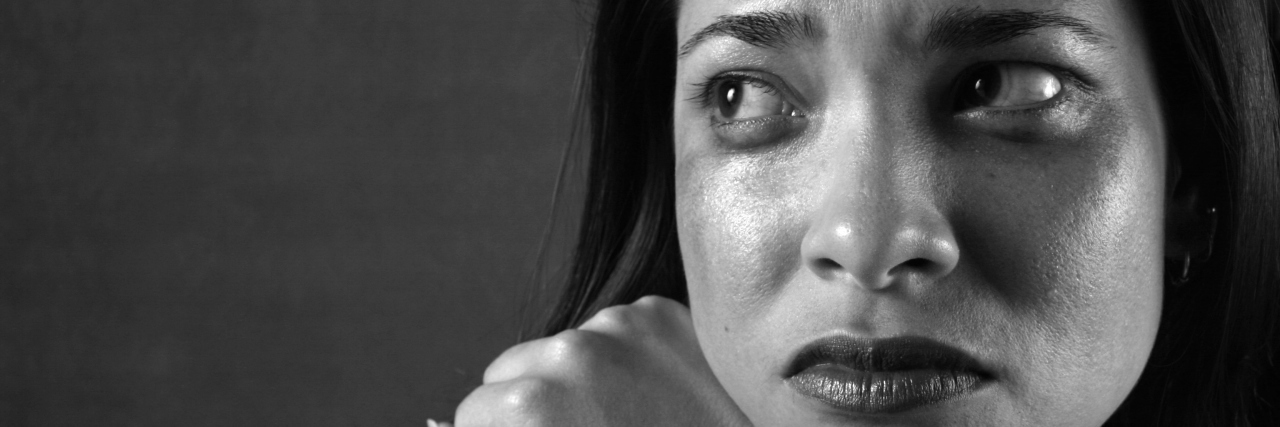First day of school.
Breathe.
It’s OK, just try and “fit in.”
What does that mean?
You know, assimilate.
But where are you from?
Here.
No, but where are you really from?
Then you realize: you can’t be who you are, and you can’t be who they’d like you to be.
The loss of self begins. The heart races. The never-ending stream of self-doubting questions starts. Who are you allowed to be, and when are you allowed to be it?
You move into your first house. Your family is referred to by your neighbors to their friends as “the best neighbors — and guess what –they’re not even white.”
You wonder, at 9 years old, why that should matter.
It’s OK, try to breathe.
You tell your parents when you’re 18 you’re going to anglicize your name. Why couldn’t they have named you something easier?
Because in your mind, you just want an end to the questioning. An end to the justifying. An end.
You get accepted into one of the largest universities in the nation. Finally, enlightened people who will “get it.” You just might be able to relax.
Over-straighten your giant, unruly curls with as much heat as possible so you can blend in with all the other girls and maybe not get unwanted, ignorant comments tossed your way.
Guess what? It’s still not enough.
You’re walking at night on campus by yourself when a group asks you for directions. You don’t respond because it’s late at night and you’re alone. So they scream, “She probably doesn’t even speak English.”
You silently wonder, “Why does skin color denote knowledge of anything?” One of the many questions you’ll never get an answer to.
Remember to breathe. Don’t stop. Walk faster. Keep going.
You remember the often self-defeating slogan almost all Brown and Black parents have told their children: “You have to work twice as hard to get half as far.”
So you get a fellowship of the highest honor to study a “category 5” language in graduate school.
Your “best” friend asks if it was awarded “because you’re a minority.”
You’ll never be good enough.
Graduation. Time for the “real world.” We’re all older. We’re all wiser. Maybe every step you take now can be a little less hesitant, and every word you speak can be a little more freeing.
Your Brown, ecstatic husband gets offered his first big job in a major city after graduating, only to have his boss blatantly call him the wrong name for a year. (His name has two syllables).
Yah, we’re too damn nice — because we have to be.
And you wonder again, why are we so nice when your own college-graduated peers don’t have the consideration to spell your name correctly, even though you sign off every email with your name, exactly the way it should be spelled.
Your chest tightens because it’s the little things. And the big things. It’s feeling like and often actually being the outsider on most occasions. The anxiety builds up and slowly engulfs you until you’re drowning.
It’s your Black friend laughing too loud at night in her own room, on vacation, in a 5-star resort and having the cops called on her.
You wonder, are we even allowed to experience joy without it being stolen away?
It’s reading the news day after day after day of Black men being gunned down for walking too fast, driving or asking directions.
And you wonder what their families must be feeling. Their communities. All Black people in America. The fear. The anger. The despair. To say their lives “matter” is now a controversial statement.
It’s remembering your friend’s family who were gunned down at the temple in Wisconsin.
It’s remembering it could have been you or your family.
It’s still knowing: it can be you or your family.
You can’t breathe.
It’s having to accept a new “normal” for people of color.
Anxiety? You’re afraid? Depression? It’s too much? You just have to “accept it.” It’s part of our experience.
As the hours pass in the darkness and the lights from the street glare into your room, you wonder if maybe it’s just you, if you’re the only one experiencing this.
But you know for many people of color, our pain is often hidden deep in our bones. Our stories – every word and every memory — pulse through our veins each day. The unforgivable and the unforgettable.
It seems as if we’ve created a unique, new mental state for survival because we must be “high-functioning” at all costs from the day we are born and throughout all the injustices we will inevitably witness and experience.
Work twice as hard…
Keep going. Keep pushing.
The statistics have been flashing in front of your eyes for the past few years. Black mothers are three to four times as likely to die from childbirth than white mothers. Asian college students are 1.6 times as likely to attempt suicide than all others. Latinx communities are at higher risk for developing and dying from chronic health conditions. We have a society deeply entrenched in racism to blame.
You try to be the advocate – to have the conversations, even when you’re too exhausted yourself from living parts of it – and you’re still met with “But what about…”
No one will validate you.
You can’t be who you are, and you can’t be who they’d like you to be.
You can’t breathe. You can’t sleep. The body and mind become a nebulous ball of depression, anxiety and anger — at times all indistinguishable from one another.
To those who feel like they can’t breathe, who can’t seem to “pull it together” and continue the unbearable burden of being high-functioning anymore through the anxiety-inducing experience of being a minority, of being “the other,” I hear you, and you are not alone.
We can work to create the safe spaces we need for self-expression and validation.
And I hope you’ll join me.

